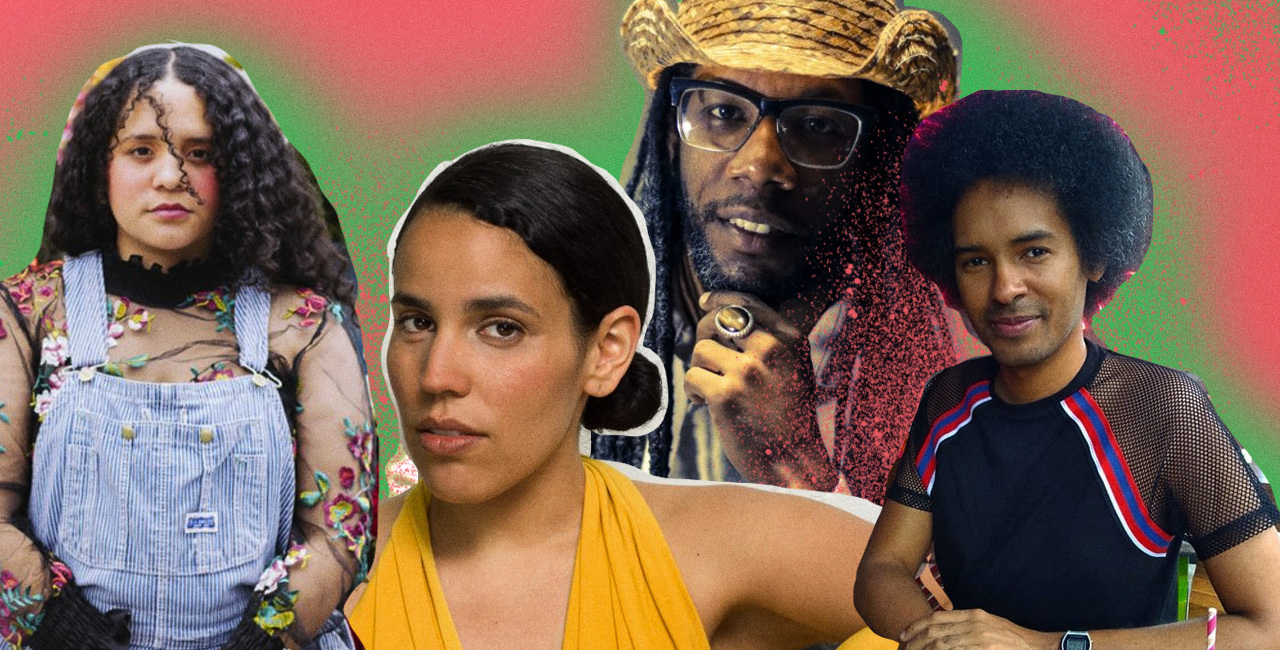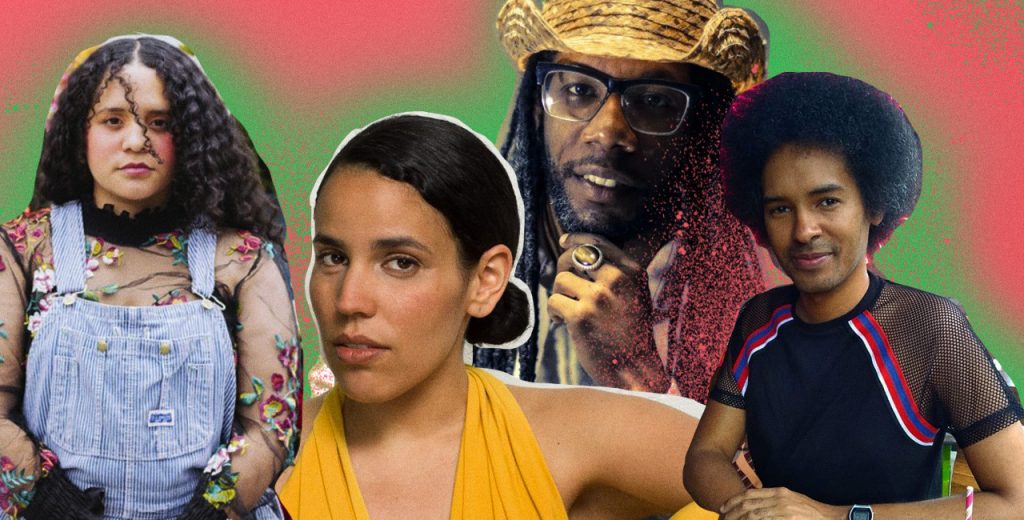Throughout 2020, Bandcamp has emerged as the undisputed MVP of outreach aimed at independent musicians affected by the Covid-19 crisis. Among tepid responses from music streaming giants, Bandcamp instead opted for relinquishing all sales revenue the first Friday of every month, since March, ensuring the highest possible amount of income reaches the artists that need it most. While one more edition of the Bandcamp Friday initiative is slated for July 3rd, the platform is once again stepping up to the plate, this time in support of racial justice by donating 100% of revenue from sales on June 19th, aka Juneteenth, to the NAACP Legal Defense Fund.
Following the murders of George Floyd and Breonna Taylor in May, Black Americans who fell victim to police brutality and shoddy accountability systems, global anti-racist protests have unfolded around the world, sparking countless overdue conversations on race, colorism and privilege. The unprecedented wave of racially charged unrest underscores the significance of Juneteenth, a holiday commemorating the date Texas freed slaves found out they were free—two years after officially being legally freed. However, in over 150 years since the first Juneteenth, the U.S. has failed to substantially address systemic racism and the constant stream of violence specifically targeting Black communities and other people of color.
Bandcamp’s fundraising initiative will benefit Black causes this Juneteenth and every year here after, doubling down on their commitment to artists and a more equitable society. The platform’s business model offers the highest payouts in the industry, with 85% of music sales and 90% of merchandise sales going directly into artist pockets—a huge step up from meager streaming earnings. Bandcamp also runs its own publication, does not require artists to manage their content through an intermediary and develops mailing lists based on fan purchases, aiming to provide ethical new ways of consuming and interacting with the music we love.
To keep the conversation on fundraising and intersectionality going, we’ve curated a list of Black Latinx artists you can support on Bandcamp this Juneteenth and into posterity.
1
Lido Pimienta
Lido Pimienta’s Afro-Colombian and indigenous Wayuu heritage are essential to her artistic DNA, beaming with pride over her ancestry while frequently calling out the many ways misogyny and internalized racism run rampant in her native Colombia. Pimienta has been an avid Bandcamp proponent for years, not only selling digital copies of her exquisite albums La Papessa (2016) and Ms. Colombia (2020), but also using the platform’s e-commerce capabilities to distribute CDs, vinyls and other beautiful merch.
2
Guampara Music
The first label devoted to Afro-Cuban hip-hop and electronic music, Guampara is the brain child of influential producer DJ Jigüe, who through his various musical and film endeavors aims to preserve the rich traditions of afrobeats and resistance blossoming on the island. Guampara’s Bandcamp page is home to lyrical innovators such as Company Yo and El Individuo, as well as Jigüe’s own extensive catalogue of house music and organic percussion.
3
Elza Soares
When Brazilian queen of samba Elza Soares unveiled her 2015 album Mulher Do Fim Do Mundo, no one expected the 79 year-old diva to unleash an apocalyptic masterpiece fiercely loaded with the pain, anger and disenchantment of an entire lifetime. Soares unpacked everything from sex work to racism and slavery, unflinching in her resolve and backed by a fleet of experimental samba musicians. To this day Soares continues to dazzle, performing frequently around Brazil and even releasing a remix album featuring guest mixes from Badsista and DJ Marfox, all available on Bandcamp.
4
Algodón Egipcio
In 2016, Venezuelan singer-songwriter and producer Cheky Bertho aka Algodon Egipcio wrote an op-ed for Remezcla detailing the many cultural intersections that forged his identity, world view and musical signature, also sharing some sage advice from his uncle: “Remember what we are, and use that in your music.” Bertho took that advice and ran, colliding soca, ambient, afrobeats, IDM and champeta across two complex, breathtaking albums, – 2011’s La Lucha Constante and 2016’s La Confianza Ciega, which remain as fresh to the ear as the day they premiered.
5
Xenia Rubinos
Xenia Rubinos is a musical rebel melding jazz, neo-soul, punk and the kitchen sink with acerbic lyrics about self-love, monolithic Latinidad and the convoluted fabric of US society. Across two pensive LPs, 2013’s Magic Trix and 2016’s Black Terry Cat, and a string of electrifying collaborations with Helado Negro and Battles, Rubinos has steadily chipped away at Latinx typecasting—proving beyond a doubt that identity does not define artistic output.
6
Nino Augustine
The global success of reggaeton is the product of black trailblazers in Puerto Rico and Panama, but you wouldn’t know it just by looking at the genre’s current superstars, with notable exceptions in Ozuna and Sech. Panama-born, Atlanta-based Nino Augustine learned his craft from the OGs, growing up on reggae en español smashes from El General and Nando Boom and later embracing the swagger and flow of Southern trap gods like Gucci Mane. You can enjoy a slew of party-starting singles on Augustine’s Bandcamp page, including “Meneito” and “Mientete,” but we also recommend dipping into his excellent 2019 EP Me Toca A Mí to soak up his riveting perreo philosophy.
7
ChocQuibTown
Colombian hip-hop fusion trio ChocQuibTown has become an extremely relevant voice in the unfolding conversations on race and privilege, particularly as frontwoman Gloria “Goyo” Martínez takes an increasingly outspoken stance on discrimination at home and the music industry at large. The group dropped a perfectly timed new album titled ChocQuib House just last week, but you can cop their 2010 debut Oro on Bandcamp (which is not available on Spotify), where bops like “Somos Pasífico” and “Rumba Sin Pelea” will still spark a thousand dance offs.
8
Carolina Camacho
With every new release, Dominican powerhouse Carolina Camacho pushes back stronger and more confidently against the virulent nationalism and internalized racism manifesting across heinous laws and bloodshed in Santo Domingo. Spend some time with her profound debut album Afrotaína, where evocative cuts “Leona” and “Palo de Colores” center plurality and ancestral rhythms like gagá and palo to deliver a masterclass in self-love, community and the importance of embracing your roots.
9
IFÉ
Spirituality is one of the foundations of Afro-Latinx music, often invoking Yoruba tradition and candomblé rhythms in order to connect our modern quest for understanding with the essence of our ancestors. We’ve heard wonderful tributes and explorations from the likes of Daymé Arocena and Xenia França (both of whom have discographies available on Bandcamp), but Puerto Rico’s IFÉ elevates the transcendent power of music by turning each release into a solemn, entrancing religious experience.
10
Linn Da Quebrada
When Linn da Quebrada released 2017’s “Bixa Preta,” the anthemic dance track resounded in our ears and minds with the strength of a canon blast aimed at the heart of Brazilian racism and transphobia. This momentum carried over into her debut album Pajubá, released in October of the same year and overflowing with experimental dance music, stoic spoken word pieces and gorgeous, minimalist music videos for each track. Pajubá is available in its entirety on Bandcamp and features fellow Brazilian trans and femme luminaries like Liniker, Gloria Groove and Mulher Pepita.
11
Ghetto Kumbé
Colliding cutting edge electronic production with the rich percussive traditions of the Guajira region, on Colombia’s northern coast, Ghetto Kumbé are one of Latin America’s foremost musical proponents of afro-futurism. Take a dive into their prismatic EPs Kumbé and Soy Selva, and pre-order their upcoming self-titled full length debut, where singles “Vamo a Dale Duro” and “Sola” promise lush explorations of ancestral techniques with modern flair.
12
The Garifuna Collective
Hailing from Belize, The Garifuna Collective is one of the most celebrated musical institutions in Central America, building an extensive discography over nearly two decades, touring internationally and joyfully sharing the resilience and depth of ancestral Garifuna traditions with the world.
13
Río Mira
Signed to ZZK imprint Aya Records, Río Mira are a bi-national marimba group born in the Pacífico Sur region of the border between Ecuador and Colombia. While white and indigenous musicians are the most visible stars of the national scene, Afro-Ecuadorians have made indelible percussive and vocal contributions to their sonic palette, – heard beautifully in the textured marimbas and bass drumming of Río Mira’s aptly-titled 2017 album, Marimba del Pacífico.
14
Canalón de Timbiquí
Led by singer and educator Nidia Góngora, Canalón de Timbiquí are another tour de force of Colombian south pacific musical tradition, drafting guardians of the Timbiqueño sound like Olivia Bonilla, Emeterio Balanta, Modesta Torres and Ninfa Ocoró for their debut album De Mar y Río. Marimba, güiros, a plethora of drums and collective chanting breathe new life into musical treasures cherished for generations, also receiving the remix treatment in a more recent EP featuring producers Uji and Cerrero.




